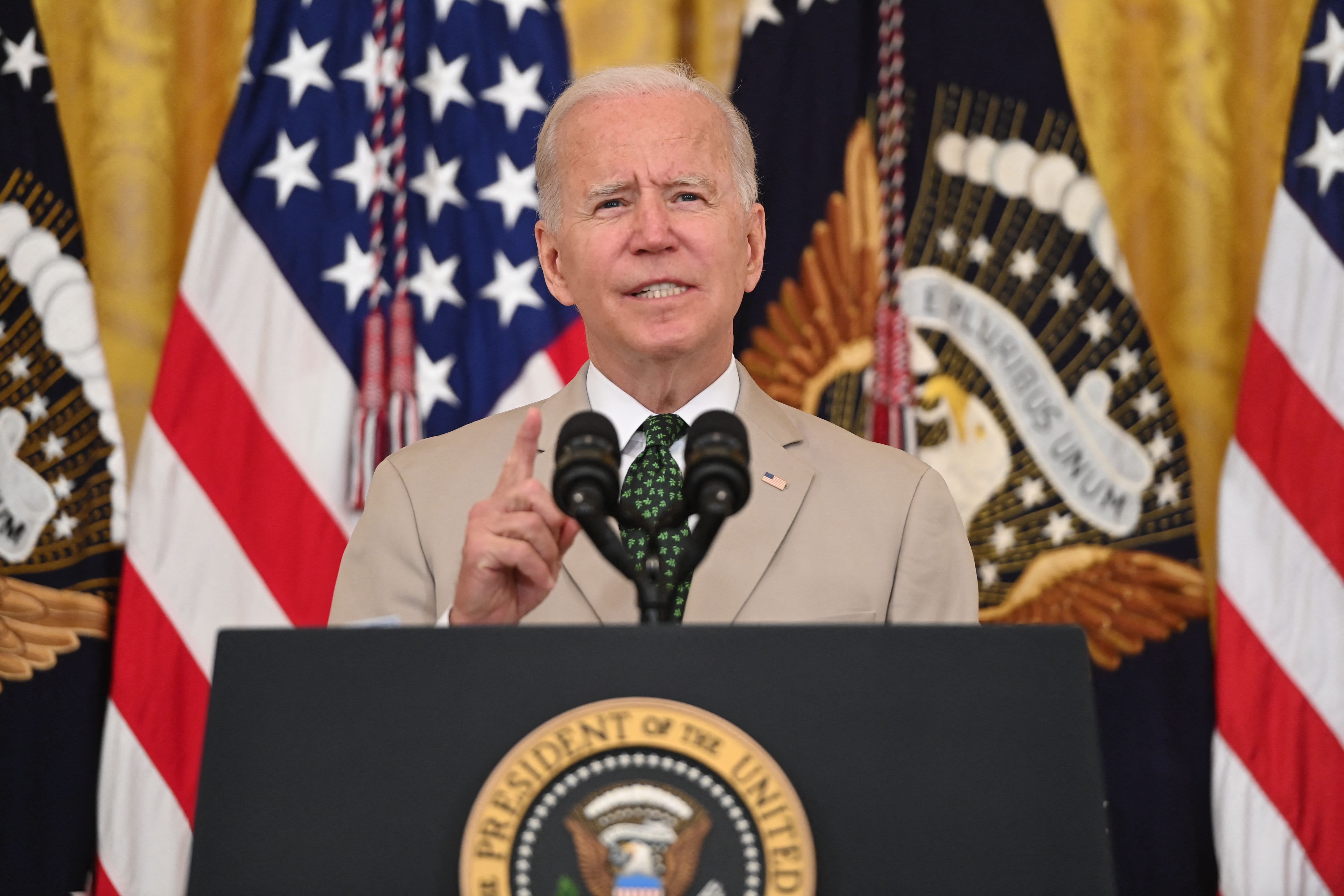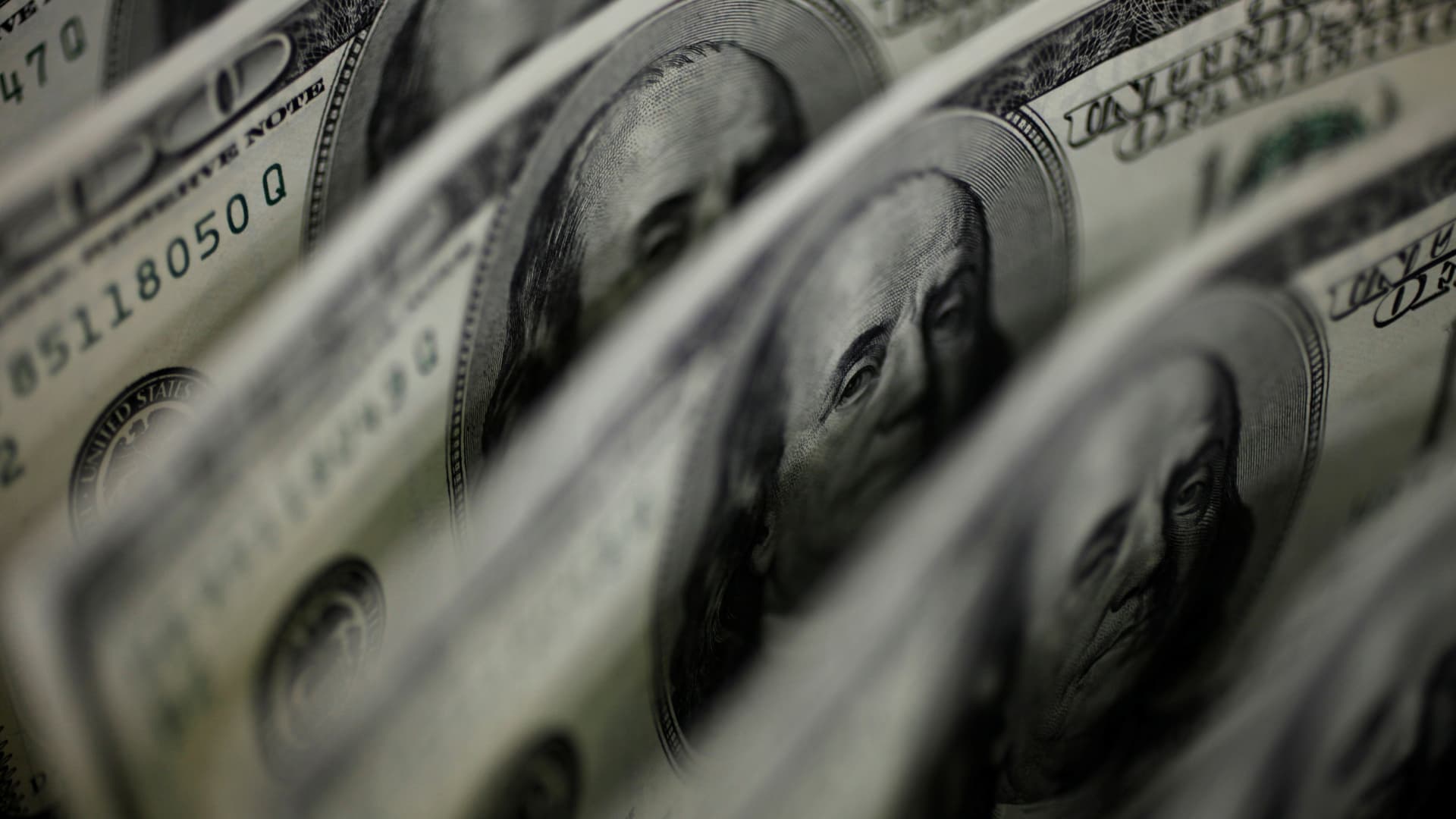Biden signs government funding bill that includes $13.6 billion in Ukraine aid
Biden signed a funding bill that will keep the government running through September and send $13.6 billion in aid to Ukraine.

U.S. President Joe Biden, center, signs H.R. 2471, the "Consolidated Appropriations Act, 2022," in the Indian Treaty Room of the White House in Washington, D.C., on Tuesday, March 15, 2022.
Samuel Corum | Bloomberg | Getty Images
President Joe Biden on Tuesday signed a $1.5 trillion bill that funds federal operations through September and sends billions of dollars in aid to Ukraine as the country fights off a Russian invasion.
Washington had to approve a spending plan by the end of the day to prevent a government shutdown.
The bill includes $13.6 billion for assistance to Ukraine, which fits into a broader U.S. effort to bolster Ukrainian defense, hamper Russia's economy and support civilians displaced by the war. The money will fund defensive military equipment and training, along with aid for Ukrainian refugees both within the country and in neighboring nations.
"We're moving further to augment support to the brave people of Ukraine as they defend their country," Biden said Tuesday before he signed the bill. He added that the U.S. will be "better positioned to provide for the rapidly growing humanitarian need of the Ukrainian people."
Biden signed the bill shortly after the White House announced he would travel to Brussels this month for an extraordinary summit about Russia's attack on Ukraine. He also approved the funding hours before Ukrainian President Volodymyr Zelenskyy's planned address to the U.S. Congress on Wednesday morning.
While the bill includes critical funding for U.S. efforts in Ukraine, it also stamps out some risks in the U.S. for now. The federal government will avoid a shutdown, which can damage the economy and put many federal employees out of work temporarily.
The bill provides enough money to cover federal spending through the end of the fiscal year Sept. 30 after Congress passed multiple stopgap plans to keep the lights on in recent months.
Lawmakers will have to approve another funding bill later this year as the midterm elections approach.
The funding legislation did not include $15.6 billion in supplemental coronavirus relief that was originally tucked into the plan. The White House has warned its efforts to curb and treat infections will suffer if Congress does not approve more aid.
While the Democratic-held House could pass more pandemic relief money, Senate Republicans may block it from getting to Biden's desk.

 Kass
Kass 































